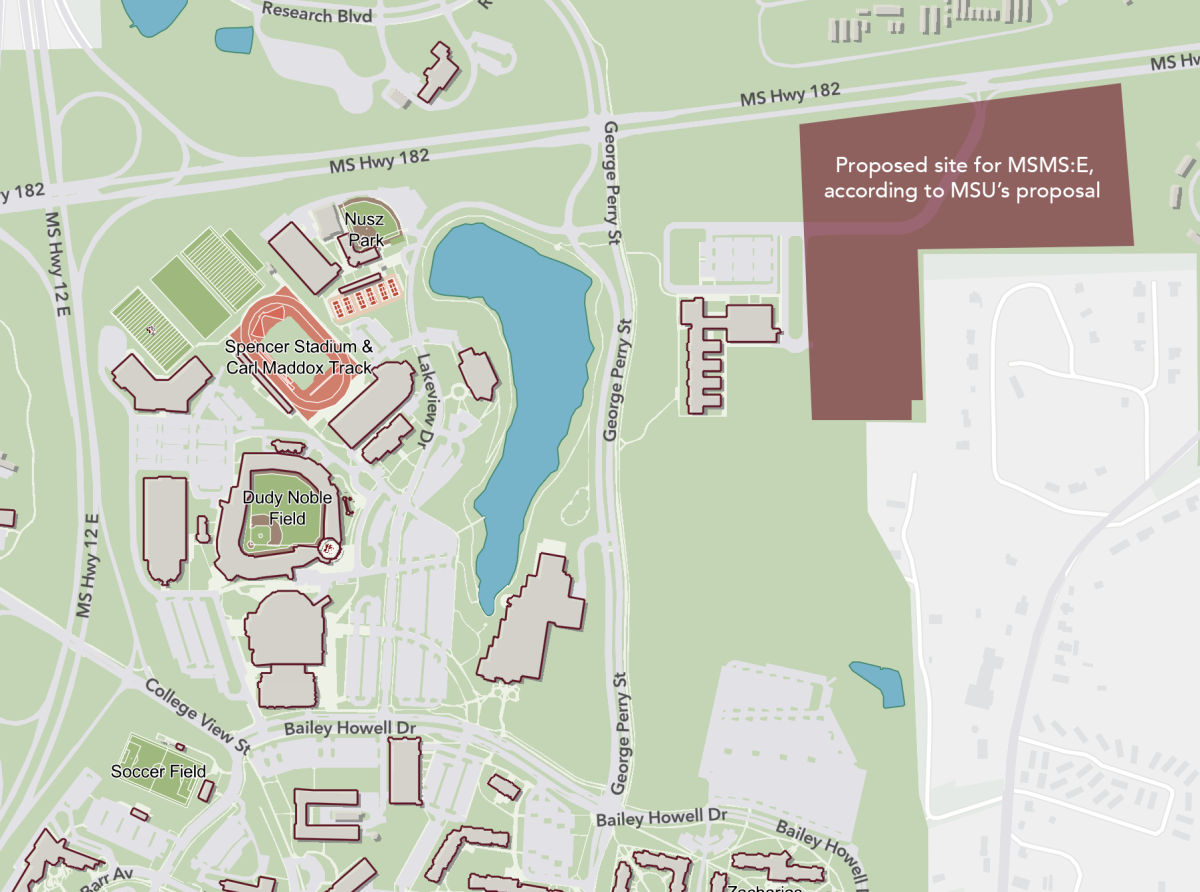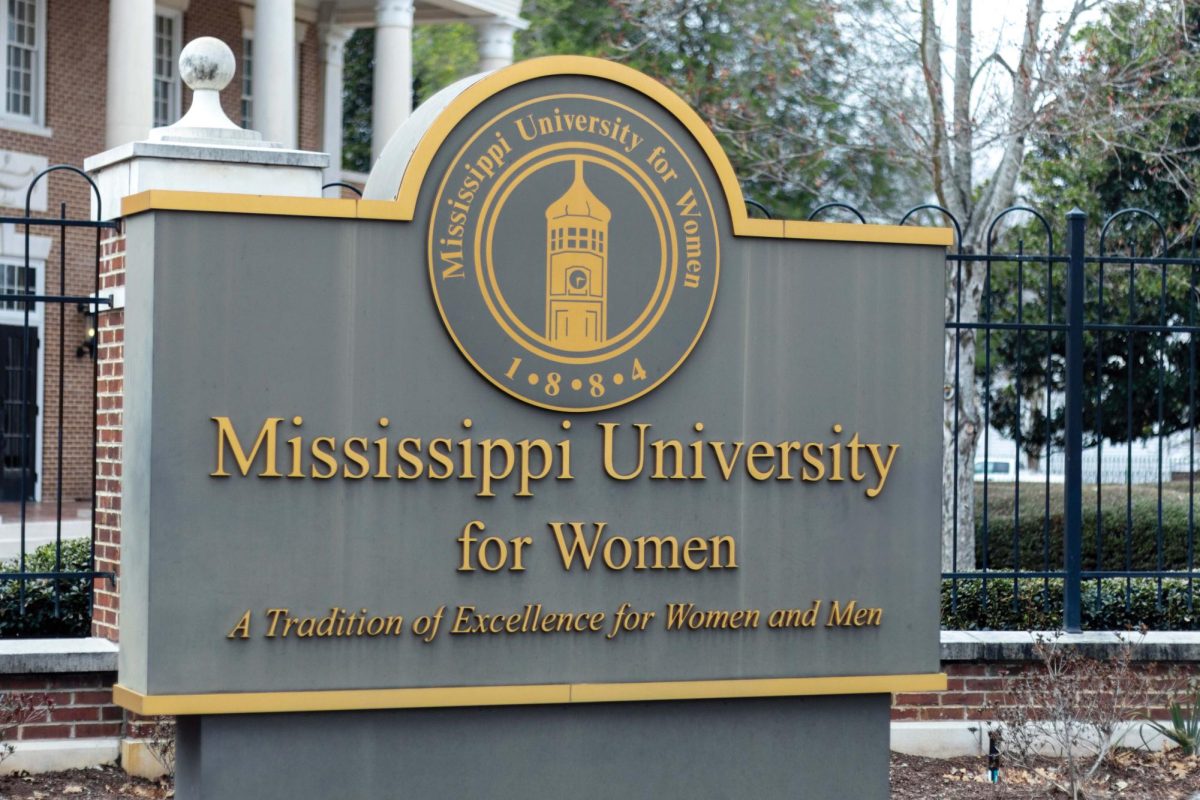After returning from spring break, a group of students gathered around the Holmes Center for Student Success on Tuesday night, trying to reconnect and ease back into their busy college lives. While many Mississippi State University students spent the break traveling and relaxing, these particular students said they did not get the same opportunity to relax during the break.
For some LGBTQ+ individuals, the first 100 days since President Donald Trump took office have been stressful.
Recent legislation, including Mississippi Senate Bill 2515, House Bill 1416 and related actions like the “Ending Illegal Discrimination and Restoring Merit-Based Opportunity” Executive Order and the U.S. Department of Education’s “Dear Colleague” letter, has challenged diversity, equity, and inclusion (DEI) initiatives in federally and state-funded universities. LGBTQ+ students have voiced that they are facing new challenges as a result of this recent wave of laws.
A graduate student from MSU studying clinical mental health counseling stated that policies limiting LGBTQ+ freedoms, such as the 2023 bill in Mississippi that prohibits gender transition procedures for minors, are creating additional challenges for transgender individuals in the United States, especially in the more conservative Southern regions.
“It’s going to make me feel negatively affected,” the student said. “I want to travel, but I don’t want to stick with one thing or the other, so that’s going to be harder. I want to change my name, and you know that’s going to be harder.”
The student, who requested anonymity based on fears for their safety, said that they have been filled with a high level of anxiety since President Trump took office. They said that they are worried about how his time in office will affect them, their future career in mental health counseling and people living in states with few protections for LGBTQ+ individuals.
“They’re already getting rid of support for mental health professions,” the student said. “One of my professors said at least one scholarship for my program is not coming back because of the DEI bills.”
In January, on Trump’s first day in office, he signed an executive order titled “Defending Women From Gender Ideology Extremism And Restoring Biological Truth To The Federal Government.” This order established that there are only two sexes and that the sex marker displayed on a person’s passport should represent their assigned sex at birth.
Additionally, President Trump ordered that all mention or promotion of gender ideology, defined by the order as “the idea that there is a vast spectrum of genders that are disconnected from one’s sex,” be removed from all federal agencies’ official documentation, including websites.
According to the American Civil Liberties Union, there are nine bills in the Mississippi House and Senate right now that will restrict LGBTQ+ rights if they are passed into law. However, another student who wished to remain anonymous said that as of right now, the only thing she has noticed change is the name of the Holmes Cultural Diversity Center (HCDC).
On Feb. 28, the HCDC’s name changed to the Holmes Center for Student Success (HCSS). The MSU Office of Public Affairs stated that the change was implemented to meet the requirements laid out by the U.S. Department of Education’s “Dear Colleague” letter released in February. The letter said that any public university must cease using race as a factor in admissions, hiring, promotion and other programs.
“The Department will no longer tolerate the overt and covert racial discrimination that has become widespread in this Nation’s educational institutions,” the letter read.
Originally founded in 1991 and named after MSU’s first black student, Richard Holmes, the HCDC housed student organizations such as the Black Student Union, Latino Student Association, Fostering LGBTQ+ Advocacy, Resources and Environments (F.L.A.R.E.) and the International Student Advisory Board.
Now, some of these organizations, like F.L.A.R.E., are being removed from the oversight of the HCSS to avoid loss of federal funding.
The second student, who is currently running for a position on F.L.A.R.E.’s executive board, said that despite the loss of funding and backing by the university, the organization will continue to persevere with outside support.
“You can change the language, make a couple of people happy, alright,” the student said. “Maybe they cut public funding for things like [F.L.A.R.E.], but there are still donors who care about these things. As long as there’s still people who care, we’ll be alright.”
Zarquavian Estes, a freshman majoring in political science, said he believes that many issues regarding the government’s treatment of LGBTQ+ individuals arise from the lack of representation of U.S. citizens within the government.
“None of the government is representative of the population of the United States,” Estes said. “All the demographics, everything. The government is not representative of the people.”
Estes further clarified that, in his opinion, every demographic that lives within the U.S. should be represented within the government. He said that includes racial minorities, LGBTQ+ people, citizens of different classes and a more even gender distribution in Congress.
As of 2024, there is one openly LGBTQ+ senator and 12 representatives, which makes up approximately 2.4% of federal Congress. However, a poll from Gallup shows that 9.3% of adults identify as LGBTQ+, indicating a disparity between the U.S. population and its representation in Congress.
On the state level, Mississippi elected Fabian Nelson in 2023 as the state’s first LGBTQ+ legislator. This means that only 0.5% of legislators in Mississippi are LGBTQ+, which falls short when compared to the Williams Institute poll estimation that 3.5% of people who live in Mississippi are LGBTQ+.
Despite these disparities, the second student said that she is not going to stop being herself to please people who are against LGBTQ+ rights
“I just love another human. What’s so wrong about that?” the second student said. “I say, ‘Live free or die.’”



















Jack H • Apr 4, 2025 at 2:19 pm
I want to point out that in paragraphs 8-10, several of these claims by the federal government run counter to measurable objective reality, and I think someone must point that out if not the article.
There are objectively people whose sex phenotypes and even their genotypes do not conform to one of the two “male” or “female” chromosomally-defined categories, XX and XY, and people who bump up against any dividing line we can think to draw to come up with two categories. Even the existence of one single person like this would demand more nuance than “there are only two sexes, period,” and yet we know there are thousands or even hundreds of thousands of Americans not so easily categorized by whichever simple broad strokes are chosen, whose existence deserves to be recognized.
There’s much more to say on that, but simply redefining reality to assert the nonexistence of thousands of Americans by the stroke of a pen is not something that ever should go unchallenged.
In addition to this first denial of reality: gender being a social construct, correlated to but not an explicit function of biological sex, is another objective fact being refused on ideological grounds by the administration.
We have good reason to think this is true as well, because gender roles have changed dramatically over time and from one location to another -morphing and changing by generation and culture as social norms do – whereas the general diversity of sexual genotypes in humans overall is relatively stable by comparison.
Gender has changed a lot depending on where you look, while sex has changed very little regardless of where you look; therefore, the link between them is not inherent and immutable.
I used to know there were only two sexes, and that gender to sex was heads to tails on a coin. Over time, evidence opened my eyes and I let myself change my mind. Instead, now I know that people who aren’t one of the “””normal””” two sexes, or whose gender identity doesn’t align with their sex, are relatively uncommon; but “relatively uncommon” isn’t a synonym for “doesn’t exist or deserve human dignity.”
We have to be willing to let evidence change our mind if it mounts a convincing case, and if our existing assumptions fly in the face of the evidence, we have to be able to challenge our own assumptions. We used to have no idea what oxygen or germs were, and our assumptions turned out to be contrary to the reality we can measure, so now we wash our hands. Digging in one’s heels as the ship turns is a good way to end up in the water.